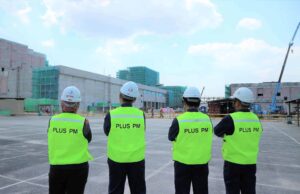In construction projects, evaluating project viability while adhering to local regulations and business practices is crucial. This comprehensive guide explores construction feasibility study objectives, methodologies, and best practices to help you make informed decisions for your construction project.
What is a Construction Feasibility Study (FS) ?
A construction feasibility study is an initial assessment phase that identifies and analyzes various project uncertainties and client requirements. The study systematically evaluates key decision-making factors to determine the project’s direction and viability. Through this process, challenges and objectives become visible, enabling stakeholders to make well-informed decisions based on comprehensive project insights.
Importance in Global Projects
When conducting a construction feasibility study, several critical elements require thorough evaluation, particularly for international projects:
- Project Budget Development
Understanding appropriate market prices in the construction location to forecast required project budgets serves as a crucial indicator of project viability.
- Timeline Development
Creating realistic schedules for design, permitting, bidding, and construction phases based on local market conditions is essential for project planning.
- Regulatory Compliance
Understanding and ensuring compliance with public laws and regulations is fundamental, requiring comprehensive analysis of all applicable requirements.
- Cultural and Social Considerations
Understanding local cultural values, customs, and religious considerations that may impact both design and construction processes is vital for project success.
- Environmental Considerations
Addressing environmental regulations, climate conditions, natural disaster preparedness, and green building certification requirements demands careful attention.
Construction Feasibility Study Objectives
At Plus PM Consultant, we define the goal of a feasibility study for our clients’ new project considerations as identifying key project factors and establishing clear business objectives that will guide the project’s direction. Specifically, we focus on:
- Clearly defining necessary and sufficient project requirements
- Identifying potential obstacles and developing mitigation strategies
- Optimizing budget and timeline parameters
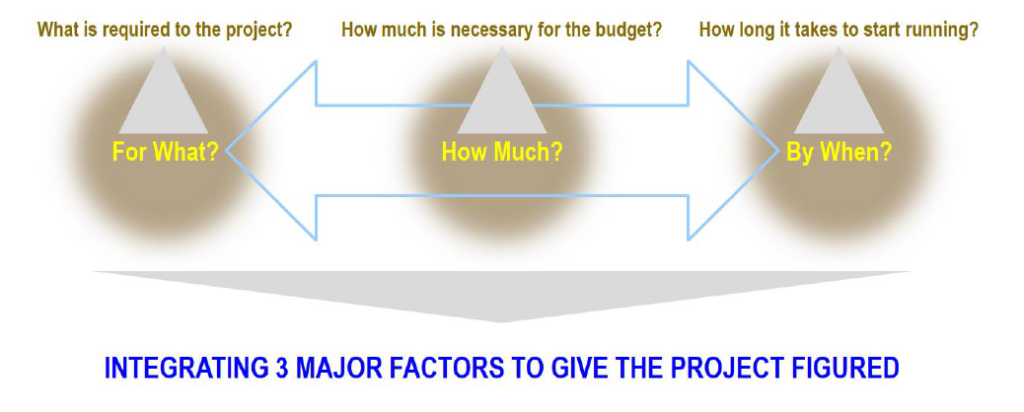
These elements directly impact risk management, cost control, and schedule management – critical factors in project success.
For detailed insights into these areas, please refer to our comprehensive guides on:
Construction Risk Assessment Guide: Keys to Project Success
Construction Cost Management: Essential Guide and Key Strategies for Project Success
Construction Schedule Management: A Complete Guide for Project Owners
When to Conduct a Construction Feasibility Study
A feasibility study proves particularly valuable in these initial project phases:
- New business venture launches
- Initial budget planning
- Project timeline development
- Regulatory compliance verification
- Construction site selection
- Existing facility condition assessment
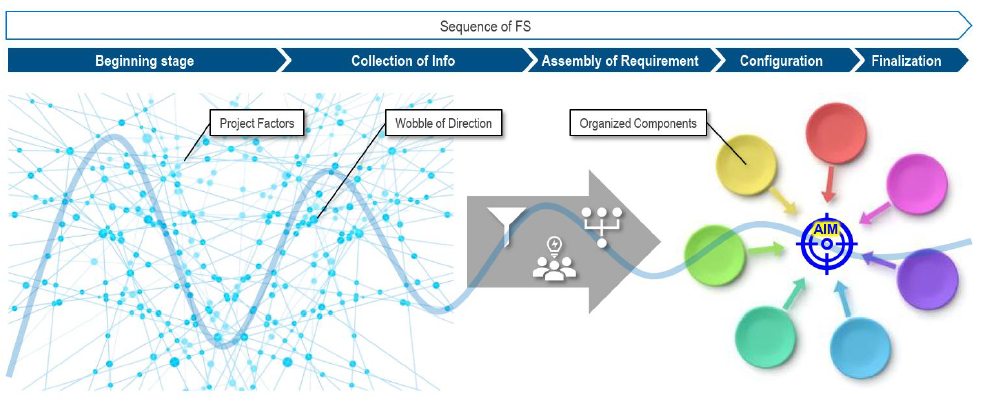
Key Components of a Construction Feasibility Study
A comprehensive construction feasibility study typically includes:
- Constraint Analysis
Identifying design and construction limitations based on regulations and environmental factors.
- Volume Studies
Visualizing potential building scale and required external facilities like parking and green spaces.
- Requirements Definition
Organizing project specifications and standards.
- Preliminary Cost Estimation
Calculating anticipated project costs.
- Master Schedule Development
Establishing timeframes for each project phase.
- Site Selection
Evaluating and shortlisting suitable construction locations.
- Building Assessment
Evaluating existing structures through both desktop research and site inspections.
- Lifecycle Management
Planning long-term maintenance schedules and budgets.
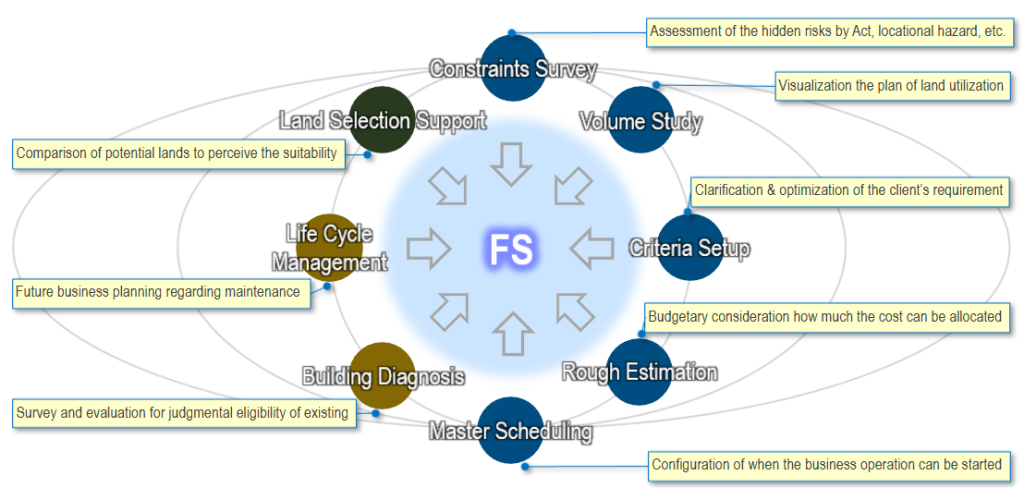
▲Click to zoom
Project Development Post-Feasibility Study
After completing the construction feasibility study and receiving project approval, the focus shifts to detailed planning and execution phases.
The project typically progresses through design and construction stages, with Plus PM Consultant offering specialized services at each phase.
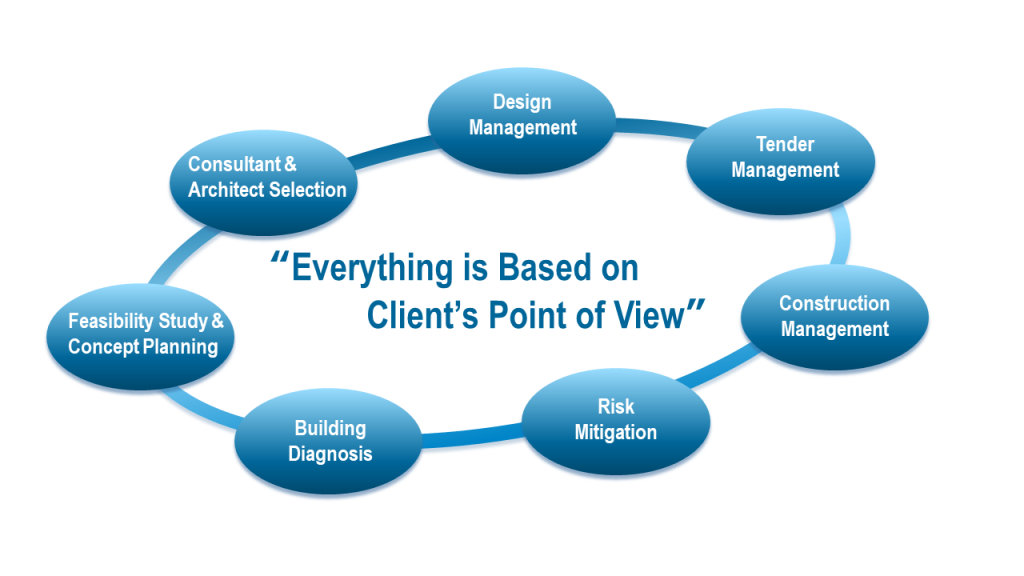
For detailed information about our services, please visit our comprehensive service guide:
Project Management Services – Plus PM Consultant
Conclusion
In construction projects involving significant investment, proper feasibility assessment is crucial for success. Plus PM Consultant brings extensive experience in conducting construction feasibility studies across various countries, regions, and regulatory environments.
For organizations considering new construction projects, we invite you to explore our feasibility study services. Our expertise in managing projects across diverse locations and regulatory frameworks positions us ideally to support your project needs.
Contact us to learn how our construction feasibility study services can benefit your next project.


